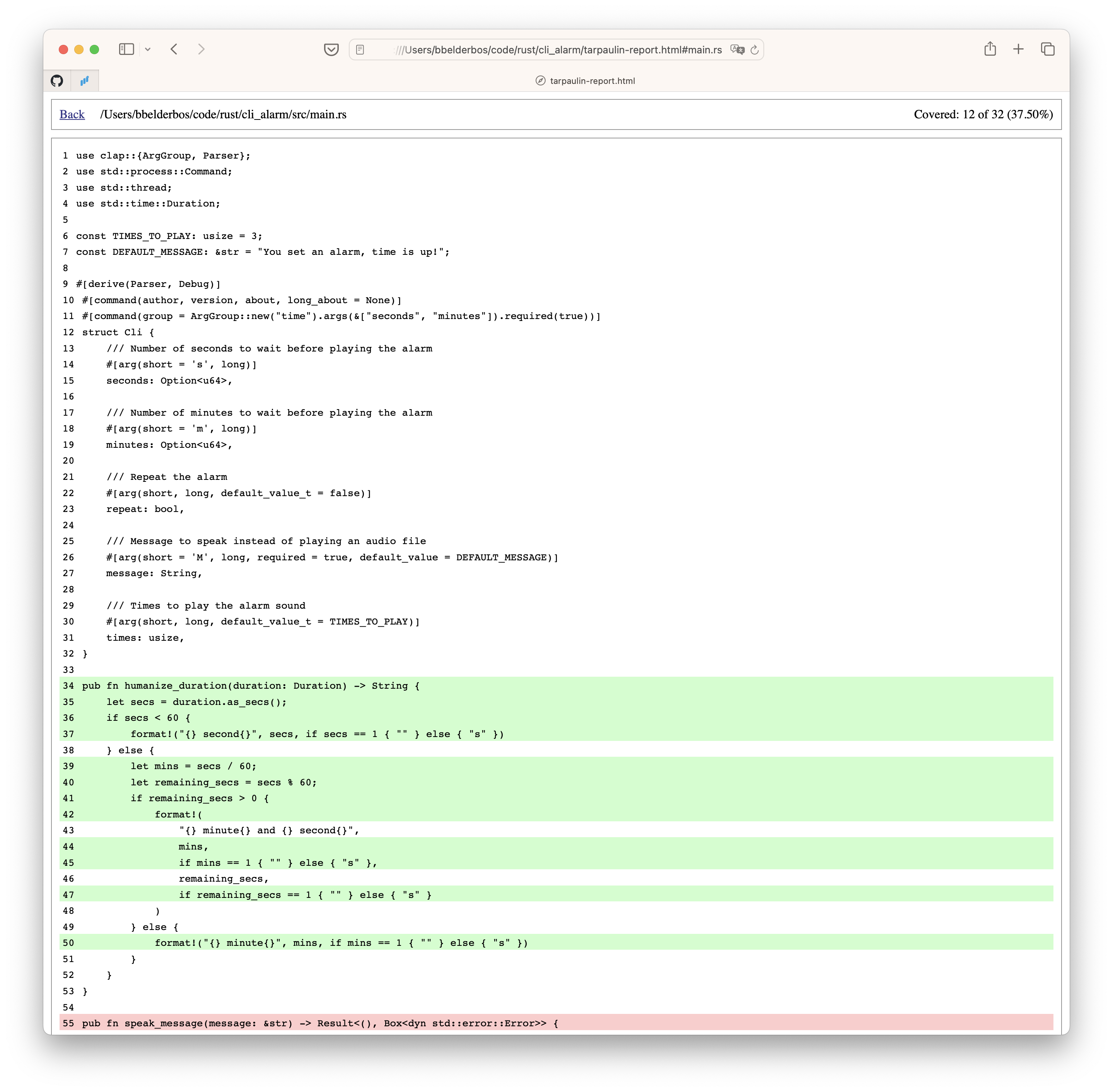Automating test runs and checking coverage
The other day I did a post on testing in Rust and the next logical step is to automate test runs and check coverage. Here's how you can do that:
- Automating test runs using GitHub Actions
This is quite easy to do with a workflow file that runs the tests on every push and pull request. Here's an example:
# .github/workflows/tests.yml
name: Rust
on: [push, pull_request]
jobs:
test:
runs-on: ubuntu-latest
steps:
- uses: actions/checkout@v2
- name: Set up Rust
uses: actions-rs/toolchain@v1
with:
toolchain: stable
override: true
- name: Cache Cargo registry
uses: actions/cache@v2
with:
path: ~/.cargo/registry
key: ${{ runner.os }}-cargo-registry-${{ hashFiles('**/Cargo.lock') }}
restore-keys: |
${{ runner.os }}-cargo-registry-
- name: Cache Cargo index
uses: actions/cache@v2
with:
path: ~/.cargo/git
key: ${{ runner.os }}-cargo-index-${{ hashFiles('**/Cargo.lock') }}
restore-keys: |
${{ runner.os }}-cargo-index-
- name: Cache Cargo build
uses: actions/cache@v2
with:
path: target
key: ${{ runner.os }}-cargo-build-${{ hashFiles('**/Cargo.lock') }}
restore-keys: |
${{ runner.os }}-cargo-build-
- name: Run tests
run: cargo test --verbose
- Checking test coverage using
tarpaulin
I was wondering if there was an equivalent to pytest-cov in Rust and I found tarpaulin. First install it:
cargo install cargo-tarpaulin
Then run it:
$ cargo install cargo-tarpaulin
2024-07-03T11:29:24.739505Z INFO cargo_tarpaulin::process_handling: running /Users/bbelderbos/code/rust/cli_alarm/target/debug/deps/alarm-556e1e717eaa9b33
2024-07-03T11:29:24.739591Z INFO cargo_tarpaulin::process_handling: Setting LLVM_PROFILE_FILE
running 4 tests
test tests::test_edge_cases ... ok
test tests::test_exact_minute_durations ... ok
test tests::test_minute_and_second_durations ... ok
test tests::test_short_durations ... ok
test result: ok. 4 passed; 0 failed; 0 ignored; 0 measured; 0 filtered out; finished in 0.00s
2024-07-03T11:29:25.052962Z INFO cargo_tarpaulin::statemachine::instrumented: For binary: target/debug/deps/alarm-556e1e717eaa9b33
2024-07-03T11:29:25.052976Z INFO cargo_tarpaulin::statemachine::instrumented: Generated: target/tarpaulin/profraws/alarm-556e1e717eaa9b33_14793736282992077593_0-7692.profraw
2024-07-03T11:29:25.052979Z INFO cargo_tarpaulin::statemachine::instrumented: Merging coverage reports
2024-07-03T11:29:25.056944Z INFO cargo_tarpaulin::statemachine::instrumented: Mapping coverage data to source
2024-07-03T11:29:25.083725Z INFO cargo_tarpaulin::report: Coverage Results:
|| Uncovered Lines:
|| src/main.rs: 55, 57-58, 62, 64, 68-69, 73, 75, 78-79, 91-92, 94, 97-98, 100-101, 104-105
|| Tested/Total Lines:
|| src/main.rs: 12/32
||
37.50% coverage, 12/32 lines covered
And to make it more visual, generate an HTML report (the equivalent of pytest --cov --cov-report=html):
$ cargo tarpaulin --out Html
Beautiful:

There you go, two more tools to help you test your Rust code.
Thanks for reading! Reach out to me on X | Fosstodon | LinkedIn: @bbelderbos